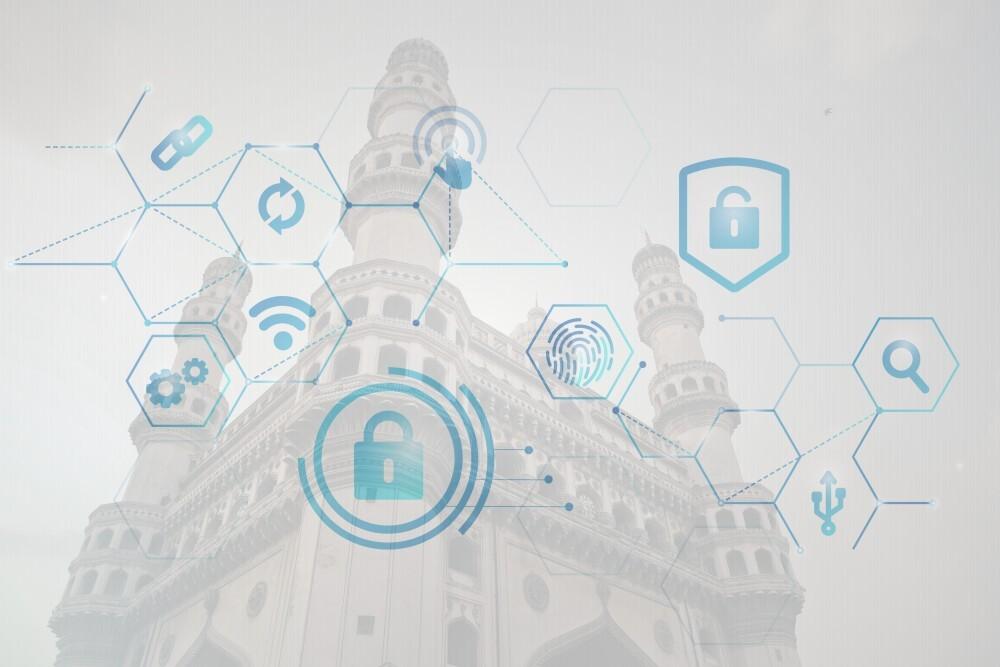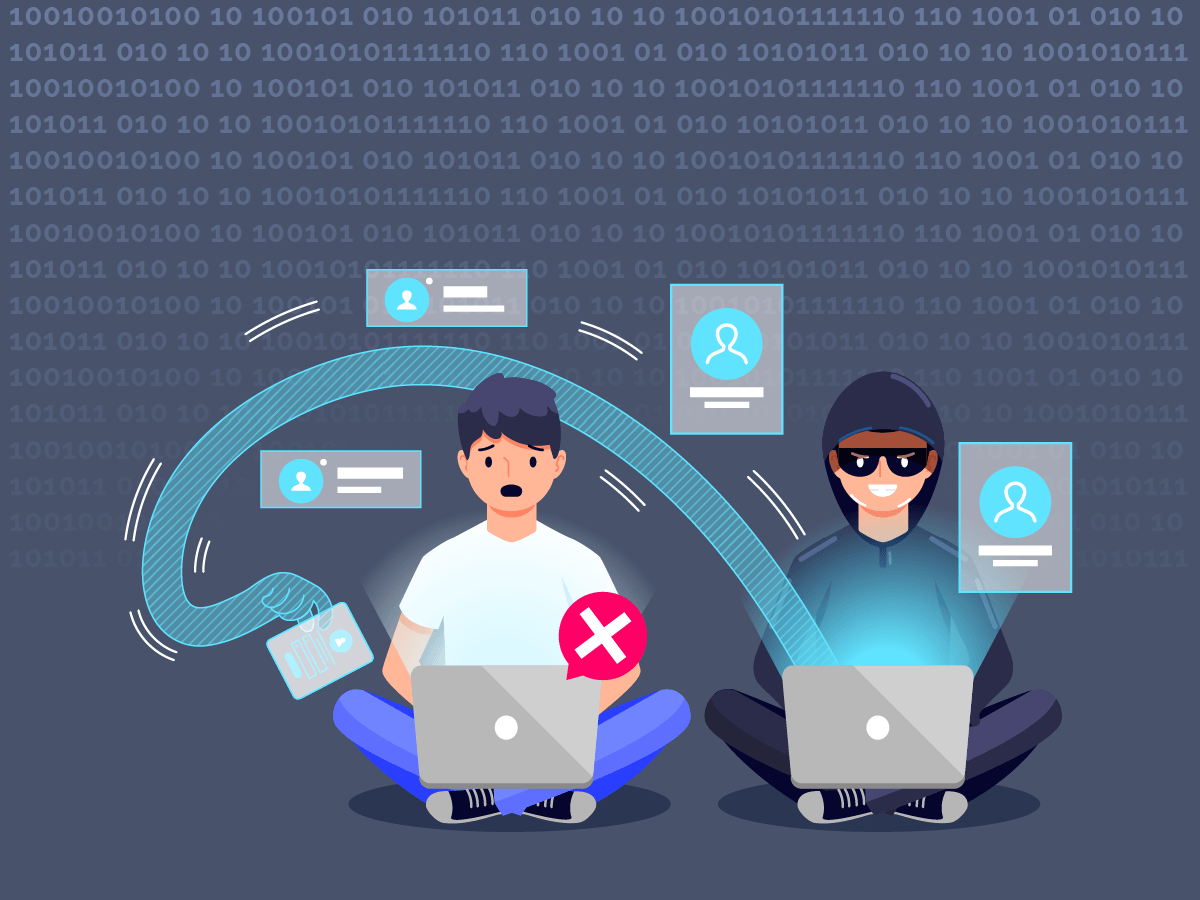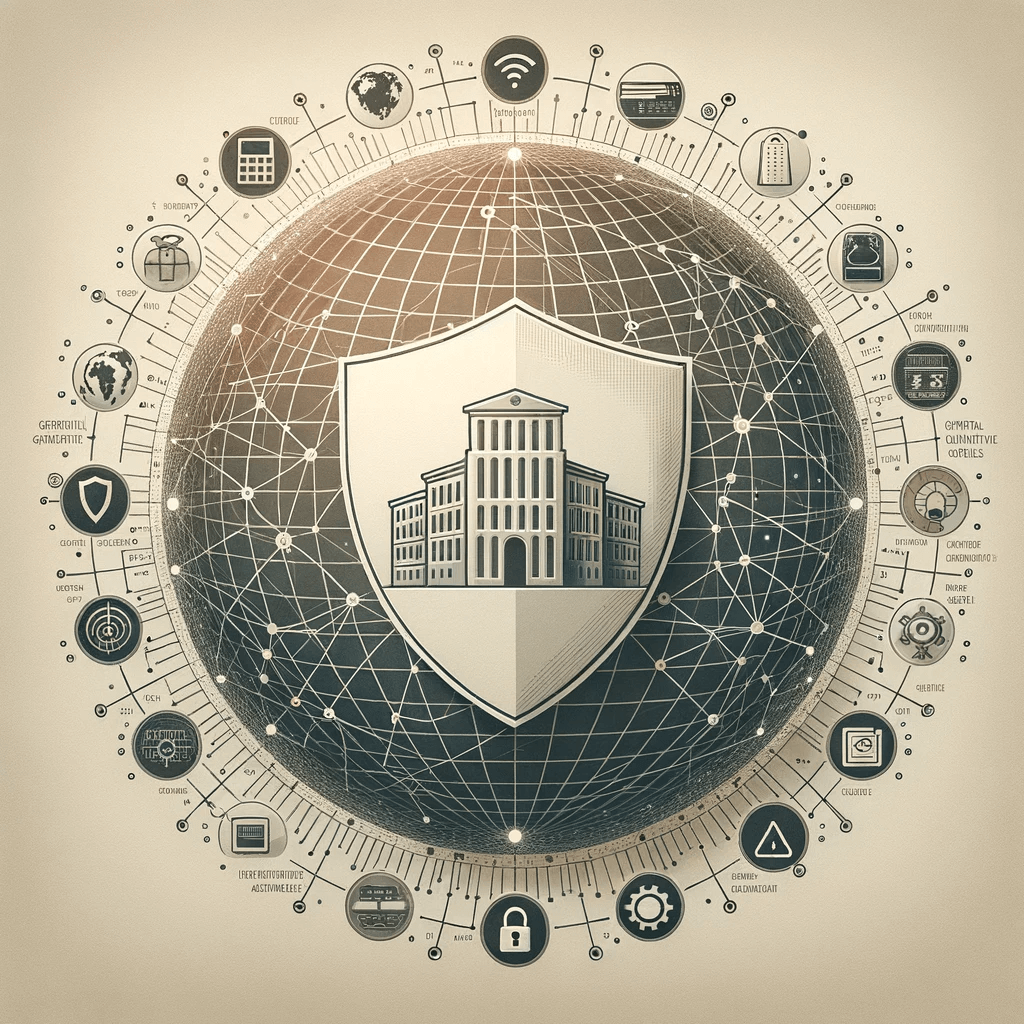
In our increasingly interconnected world, the importance of fortifying cybersecurity cannot be overstated. Cybersecurity, in essence, is the practice of safeguarding digital systems and networks to ensure the safety of cyberspace. It serves as a digital shield against burgeoning cyber threats, making it a critical aspect of government operations. The nature of data handled by governments is highly sensitive. If such information were to fall into the wrong hands, it could pose a significant threat to national security. This is why cybersecurity is important for the government as we need to protect the vital information stored by the government.
Furthermore, governments are progressively leveraging digital platforms across various operational areas to enhance transparency and streamline functionality. However, this growing dependence on digital technologies inadvertently elevates the risk of data breaches and other forms of cybercrime. Therefore, robust cybersecurity measures are not just important but indispensable in today’s digital age.
The Evolving Threat Landscape
In the rapidly evolving landscape of technology, where innovation and digital transformation are constantly pushing the boundaries of what is possible, there is a parallel and equally significant development occurring. This is the evolution of cyber-threats, which seek to exploit the digital landscape. These threats are becoming increasingly sophisticated and complex.
The digital servers of government bodies contain sensitive information and if the server is encrypted or the data is breached, it can have a drastic effect on a national level. From defence secrets to information about the citizens, the government holds the most important information about the country. This makes government entities prime targets for cyber attackers. Therefore, why cybersecurity is important for government becomes clear from the national security concerns that arise from cyberattacks.
Understanding Cybersecurity in the AI era
AI has undoubtedly brought convenience to our lives, but it has also presented new opportunities for cybercriminals. These malevolent actors can exploit AI’s vulnerabilities for their own benefits, often with reduced risks of detection. AI’s capability to generate convincing fake content poses a significant concern, as cybercriminals can employ this technology to collect information more efficiently. Moreover, the risk of social engineering is exacerbated, making it imperative to address these emerging challenges.
Currently, ‘AI bias’ is also becoming a growing concern. AI algorithms can favour certain groups based on past data, potentially leading to unfair outcomes. Additionally, AI’s integration opens the door to cybersecurity risks. It’s crucial to focus on cybersecurity in the AI era to address these challenges and ensure equitable and secure AI usage. All these threats explain why cybersecurity in the AI era should be given utmost attention.
National Security Concerns
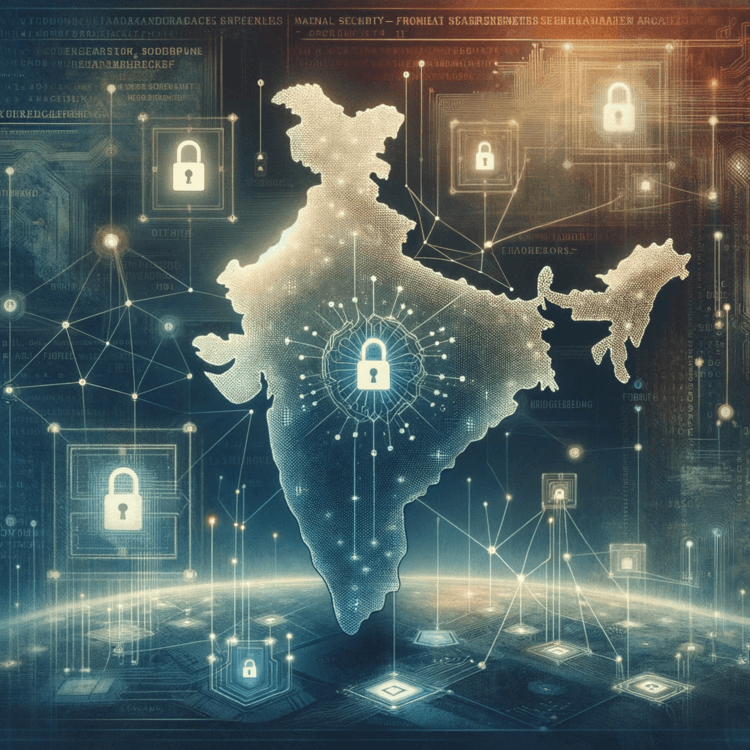
The information that government bodies contain is very vital and it can be really harmful for the country if it is breached. Let’s have a look at some examples of cyberattacks that have targeted government agencies:
Dragon Force : The number of cyberattacks against Indian government agencies doubled in 2022, making it the most targeted country in this sector. This expansion is the result of the hacktivist group Dragon Force Malaysia’s #OpIndia and #OpsPatuk campaigns. Numerous hacktivist groups joined and supported these campaigns, which laid the path for subsequent ones (Economic times).
ISRO: S. Somanath, the chairman of the Indian Space Research Organisation (ISRO) said on a cyber conference that the country’s space agency is facing more than 100 cyber-attacks daily (Hindustan Times).
These examples show why cybersecurity is important for government and how cyberattacks can compromise national interests and security.
Protection of Sensitive Data

The protection of sensitive government data, such as classified information, citizen records, and financial records, is of paramount importance due to its potential to destabilise the nation’s economy if accessed by malicious entities. A breach of this data not only poses a direct threat to individual privacy, but also erodes public trust in the government.
The government holds a vast array of personal information about its citizens, including medical records, financial transactions, and addresses. Therefore, it is critical for the government to ensure the safety of this data. This shows why cybersecurity is important for government, as it safeguards the privacy and security of the citizens.
Critical Infrastructure Protection
In the intricate tapestry of a nation’s framework, government entities play a pivotal role as custodians of the country’s critical infrastructure. This includes, but is not limited to, the power grids that illuminate our cities and power our industries, the transportation systems that serve as the arteries of commerce and daily life, and the healthcare institutions that safeguard the well-being of the citizens.
A cyberattack on these critical systems is not merely an isolated incident, but a potential national crisis. The ripple effects of such an attack can permeate through the very fabric of the nation, disrupting everyday life and causing significant damage. Therefore, why cybersecurity is important for government becomes evident from the need to secure these vital systems, as their compromise could have far-reaching impacts on the nation’s economy, security, and well-being.
Economic Implications

Cyberattacks on government institutions can precipitate a cascade of grave economic consequences that reverberate far beyond the immediate incident. These include direct financial losses, which can manifest in various forms such as ransomware demands, theft of funds, or fraudulent transactions. The operational disruption caused by a cyberattack can bring essential services to a standstill, resulting in significant indirect costs.
The financial implications of recovering from cyber incidents are multifaceted and can be substantial. Data recovery efforts, for instance, can be a complex and costly process, particularly if specialised expertise or equipment is required. System restoration is another significant expense, as it often involves not only repairing the compromised systems but also enhancing security measures to prevent future attacks.
Cybersecurity as a National Priority
Given the increasing reliance on digital infrastructure, cybersecurity should be treated as a national priority. This is not just about protecting sensitive data, but it’s also about safeguarding our national security and economic stability. Cyber-attacks can disrupt critical infrastructure, compromise military operations, and even influence elections. They can disrupt businesses, lead to financial losses, and undermine consumer trust.
The pivotal role that government agencies and cybersecurity organisations play in the protection of a nation’s digital infrastructure cannot be overstated. They are tasked with enforcing stringent regulations that govern the use and protection of data, thereby ensuring that businesses and individuals adhere to best practices in cybersecurity. Furthermore, they raise awareness about why cybersecurity is important for government and equip individuals with the skills needed to protect themselves and their organisations from cyber threats.
International Cybersecurity Cooperation
The significance of international cooperation in combating cyber threats is paramount, given the inherently global nature of these threats. This global reach necessitates a unified, international response to counter these threats effectively. Pooling resources is another key advantage of international cooperation in cybersecurity. By combining their resources, countries can leverage each other’s strengths and compensate for their weaknesses. Moreover, international cooperation paves the way for the establishment of globally acceptable standards in cybersecurity. These standards provide a common framework for countries to follow, ensuring consistency in the way cyber threats are handled across the globe.
Government Cybersecurity Initiatives
The Indian government recognises why cybersecurity is important for government and hence has started some initiatives for the improvement and monitoring of cybersecurity like National Cyber Security Policy (NCSP), Digital India campaign and Cyber Swachhta Kendra.
Meanwhile, Indian Computer Emergency Response Team (CERT-In), Cyber and Information Security (C&IS) Division and Defence Cyber Agency (DCyA) are some of the agencies are some of the agencies led by government that are responsible for the betterment of cybersecurity in India. In an era where digital technology is at the heart of virtually every aspect of daily life, it becomes increasingly crucial to invest in cybersecurity resources and expertise.
This is not merely a suggestion, but a necessity in order to safeguard sensitive information, maintain privacy, and ensure uninterrupted services.
Public Awareness and Education
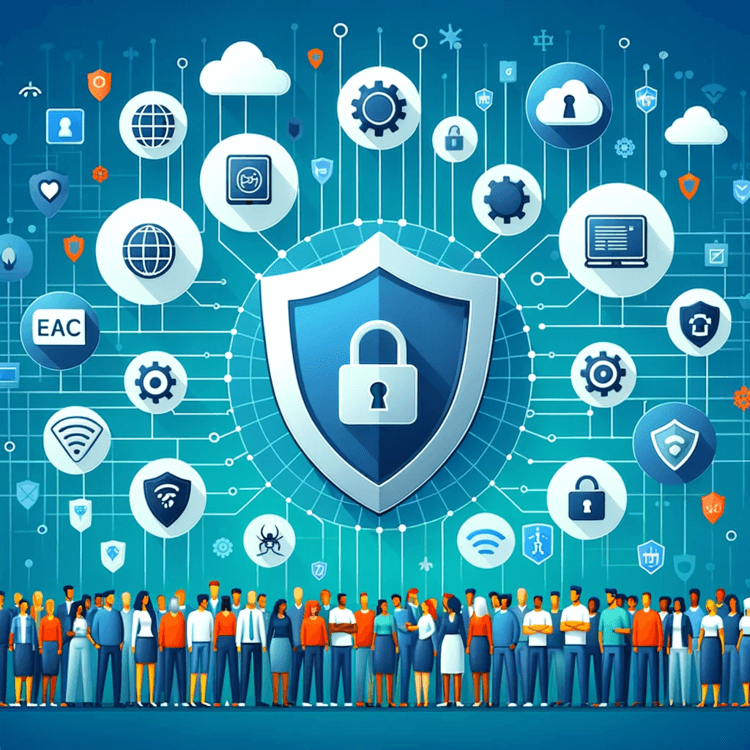 Public awareness and education are not just important, but essential components of strengthening government cybersecurity. By fostering a culture of vigilance among citizens, we can significantly reduce the number of vulnerable attack surfaces that cybercriminals can exploit. Moreover, public education initiatives can help reinforce trust in government systems. When citizens understand how their data is being protected and the measures the government is taking to ensure their privacy, they are more likely to use digital services with confidence.
Public awareness and education are not just important, but essential components of strengthening government cybersecurity. By fostering a culture of vigilance among citizens, we can significantly reduce the number of vulnerable attack surfaces that cybercriminals can exploit. Moreover, public education initiatives can help reinforce trust in government systems. When citizens understand how their data is being protected and the measures the government is taking to ensure their privacy, they are more likely to use digital services with confidence.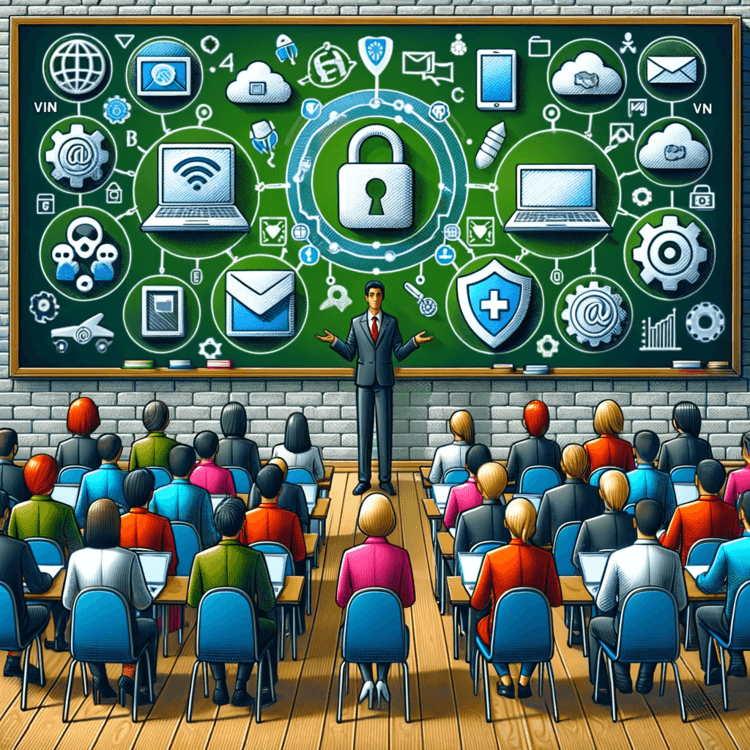
Conclusion
In the intricate web of governance, national security and public trust, cybersecurity emerges as the crucial thread that binds them all together. In this digital era, where data is the new oil and information is power, cybersecurity stands as the guardian at the gates, ensuring that this power doesn’t fall into the wrong hands.
As we continue to embrace digital transformation in every aspect of governance, we must also reinforce our commitment to cybersecurity. It is an ongoing journey that requires constant vigilance, continuous learning, and unyielding resilience. In conclusion, why cybersecurity is important for government isn’t just about protecting networks or systems; it’s about safeguarding our way of life in the digital age. It’s a responsibility we all share, from government agencies to individual citizens, because a threat can cause harmful consequences in the interconnected world of today.

